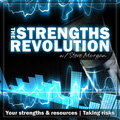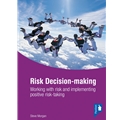Tribute to Steve Onyett
 Tuesday, October 6, 2015 at 4:35PM
Tuesday, October 6, 2015 at 4:35PM This post was originally drafted in response to a request from the Centre for Mental Health and appears on their site at the following link: http://www.centreformentalhealth.org.uk/News/tribute-to-steve-onyett
 Steve OnyettIt’s 1992, I’m submitting the manuscript for the publication of my first book. Anticipation is tinged with anxiety, an anonymous reviewer holds the power to launch or terminate my fledgling writing career. All fears immediately recede as I receive pages of positive comment and constructive critique. Many references are made to a newly published book ‘Case Management in Mental Health’ (he beat me to that title by 6 months) give away the source of the review. Steve never did anonymity very well!
Steve OnyettIt’s 1992, I’m submitting the manuscript for the publication of my first book. Anticipation is tinged with anxiety, an anonymous reviewer holds the power to launch or terminate my fledgling writing career. All fears immediately recede as I receive pages of positive comment and constructive critique. Many references are made to a newly published book ‘Case Management in Mental Health’ (he beat me to that title by 6 months) give away the source of the review. Steve never did anonymity very well!
Fast-forward 22 years through my publications CV and I realize my latest book would benefit from an appropriate foreword from a recognized expert. They say ‘when you want something doing ask a busy person’, that should have been coined about Steve Onyett as he agreed unequivocally and produced a pitch perfect reflection of the book. Who else could get royalty and the act of farting into a mental health textbook with such skill?
In 2009, while facilitating a team development workshop, I received two of the finest compliments I have ever received. Two senior and experienced practitioners enthusiastically told me how influential my book had been on their work. As they elaborate further it becomes clear to me they are talking about ‘Teamworking’, published by Steve in 2003. As I had been acknowledged in his book I decided to unashamedly bask in the reflected glory. Being Steve Onyett for a few minutes still ranks as one of my finest moments! He loved that anecdote when I recently revealed it to him, but couldn’t help but try to reflect any glory back to me. Steve had a particular modesty when it came to appraising his own work.
In his relationship to others the word that comes to mind for me in describing Steve would be generosity. He gave of his time, but perhaps more important was the quality of that gift. Steve had a generosity of spirit that shone through his passion to understand and help people. To describe Steve by his professional role of psychologist is to miss the point; he was a humanist who believed in the potential of others and dedicated his life to supporting and developing people. His choice of the Spanish word ‘Entero’ was apt for describing his passion for the whole person, supporting people to discover or recover their own solutions, identity and true place in the world.
His conference presentations were dynamic and engaging, and his workshops were always a passionate process of exploration and discovery. Steve understood the stupidity of some of the systems we have created, but was always prepared to work within them to create better leadership and conditions for change. He infused everything he did with a big heart, but on 28th September 2015 that heart tragically failed him. I lost my greatest guide and mentor, and the world of mental health lost one of its brightest lights. To use one of his favourite words, knowing you Steve was truly ‘groovy’… rest in peace my dear friend.
 Steve Onyett
Steve Onyett 






